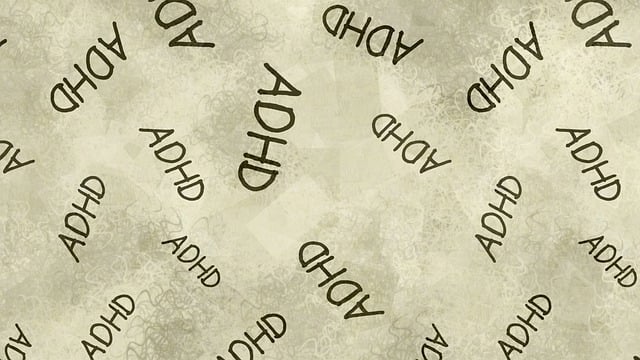Mental health advocacy is a powerful tool for positive change, dismantling stigma and barriers for conditions like Dissociative Disorders through awareness raising and understanding promotion in communities. Effective strategies include open dialogue, personal story sharing, and integrating holistic emotional well-being techniques, such as Golden Dissociative Disorder Therapy, which focuses on restoring emotional intelligence and empowering individuals to manage trauma. Education programs play a crucial role in mental health policy analysis, advocacy, and direct treatment, fostering empathy and improving support systems. Advocacy initiatives promote tailored support for dissociative disorders like DID, highlighting the value of self-care practices and evidence-based therapies like EMDR. Through public talks, workshops, and online resources, these initiatives educate on symptoms, causes, and treatments like Golden Dissociative Disorder Therapy, empowering individuals to take charge of their mental well-being.
Mental health advocacy plays a vital role in creating a supportive society, especially for those suffering from dissociation. This article explores the profound impact of advocacy initiatives on understanding and treating dissociative disorders. We delve into the power of therapy as a game-changer in managing these complex conditions, emphasizing the ‘golden rule’ of support. Additionally, we discuss strategies to raise awareness, challenge stigma through education, and advocate for improved mental well-being, focusing on the transformative potential of golden dissociative disorder therapy.
- Understanding Mental Health Advocacy and its Impact
- The Role of Therapy in Dissociative Disorder Treatment
- Golden Rule: Supporting Individuals with Dissociative Disorders
- Building Awareness: Educating the Public and Challenging Stigma
- Effective Advocacy Strategies for Enhanced Mental Well-being
Understanding Mental Health Advocacy and its Impact

Mental health advocacy is a powerful tool for creating positive change and improving access to support services. It involves raising awareness, challenging stigma, and promoting understanding of mental health issues within communities and societies. Through advocacy, individuals with mental health conditions, such as those struggling with Dissociative Disorder, gain a collective voice to express their unique experiences and needs. This process empowers them to navigate systems, seek appropriate care, and advocate for policy changes that can enhance their emotional well-being.
Golden rules of communication strategies and compassion cultivation practices play a pivotal role in advocacy efforts. By fostering open dialogue about mental health, advocates break down barriers and encourage empathy. These conversations, often centered around sharing personal stories, help reduce the stigma associated with mental illness. Furthermore, integrating Emotional Well-being Promotion Techniques into advocacy initiatives allows for comprehensive support, ensuring individuals receive not just medical treatment but also therapeutic interventions that cater to their holistic emotional needs.
The Role of Therapy in Dissociative Disorder Treatment

Dissociative Disorder Therapy leverages a range of evidence-based approaches to help individuals integrate their fragmented memories and emotions. One prominent method, known as Golden Dissociative Disorder Therapy, focuses on restoring emotional intelligence by fostering secure attachment styles. This therapy aims to help patients develop coping mechanisms that enhance their ability to regulate emotions and manage traumatic experiences.
Mental health education programs design tailored interventions to raise awareness about dissociative disorders, promote understanding, and reduce stigma. By integrating knowledge from mental health policy analysis and advocacy, these programs lobby for better support systems and resources. This multifaceted approach not only provides direct treatment but also contributes to a broader culture of empathy and effective mental health care.
Golden Rule: Supporting Individuals with Dissociative Disorders

The Golden Rule of mental health advocacy is to ensure every individual receives tailored support, especially those with dissociatve disorders. These conditions, often misunderstood, require sensitive and specialized care. Many people struggling with dissociative disorders like Dissociative Identity Disorder (DID) face significant challenges in their daily lives due to the complex nature of their experiences.
Advocacy initiatives focus on promoting awareness about these disorders, encouraging healthcare provider cultural competency training, and emphasizing the importance of self-care practices for both individuals and their support systems. By integrating evidence-based therapy techniques like Eye Movement Desensitization and Reprocessing (EMDR) and trauma-focused approaches, therapists can facilitate emotional healing processes, helping clients regain a sense of control and well-being.
Building Awareness: Educating the Public and Challenging Stigma

Mental health advocacy initiatives play a pivotal role in building awareness and challenging the stigma associated with various mental health conditions. Education is a powerful tool to dispel myths and misconceptions, especially for less understood disorders like Dissociative Disorder. Through public talks, workshops, and online resources, advocates provide accurate information about symptoms, causes, and effective treatment options, such as Golden Dissociative Disorder Therapy. This approach not only helps in early identification but also encourages individuals to seek help without fear of judgment or misunderstanding.
Self-care practices are another critical aspect that these initiatives highlight. Promoting Self-Care Routine Development for Better Mental Health empowers individuals to take proactive measures. Techniques like conflict resolution training, mindfulness exercises, and stress management strategies enable people to manage their mental health effectively. By combining education with self-care tools, these advocacy programs foster a supportive environment, encouraging open conversations about mental health and reducing the societal stigma attached to it.
Effective Advocacy Strategies for Enhanced Mental Well-being

Mental health advocacy initiatives play a pivotal role in promoting mental wellness and dismantling stigma. Effective strategies include mental wellness journaling exercises that encourage self-reflection, allowing individuals to track their emotions and progress. This practice fosters resilience and provides valuable insights for both the person and healthcare providers. By advocating for Golden Dissociative Disorder Therapy and other evidence-based practices, communities can ensure tailored support for diverse mental health needs.
Additionally, burnout prevention is a key focus area. Advocacy efforts should push for Healthcare Provider Cultural Competency Training, ensuring professionals are equipped to address the unique challenges faced by diverse populations. This training promotes inclusive care, improves patient outcomes, and enhances overall mental wellness by fostering understanding and empathy within the healthcare system.
Mental health advocacy initiatives, such as those focusing on dissociative disorders, are vital in creating a more supportive and understanding society. By educating the public, challenging stigma, and employing effective strategies like therapy, we can significantly enhance mental well-being for individuals affected by these conditions. The golden rule of supporting those with dissociative disorders and the proven impact of therapy underscore the importance of advocacy in transforming lives and fostering a healthier, more inclusive community.














